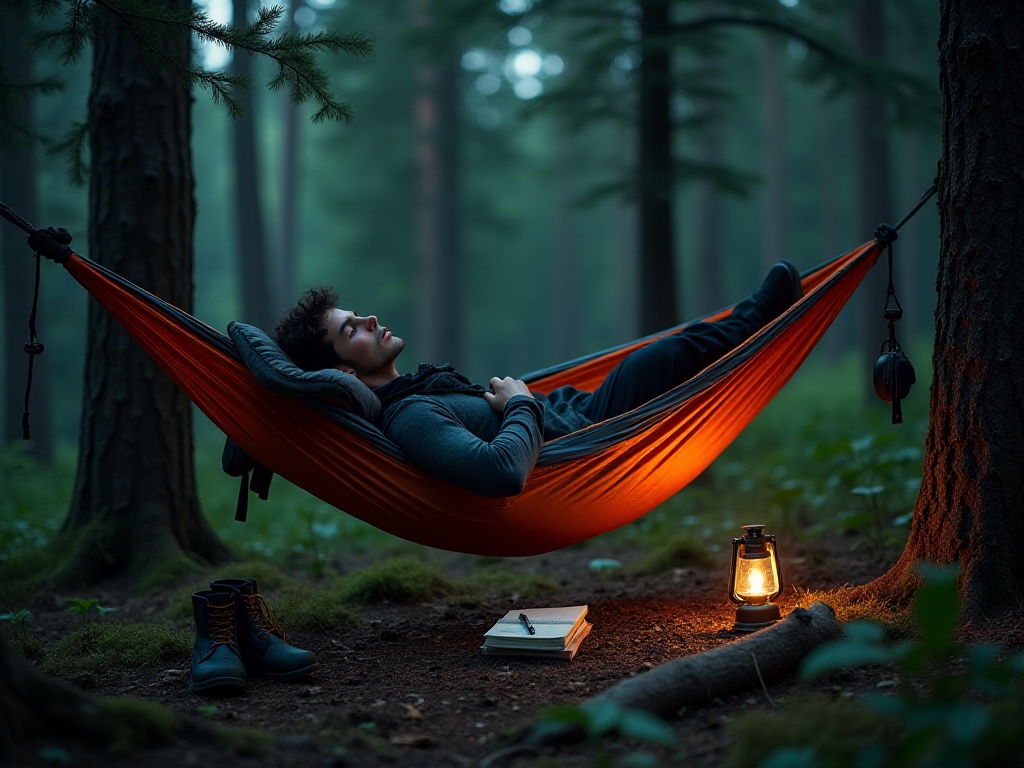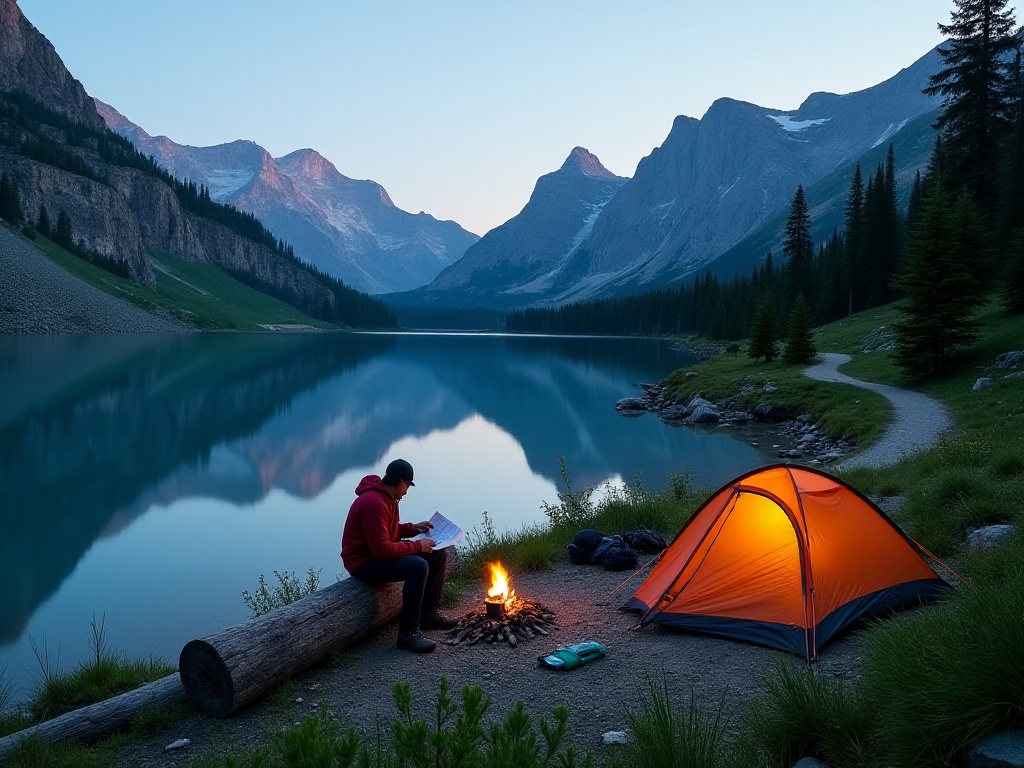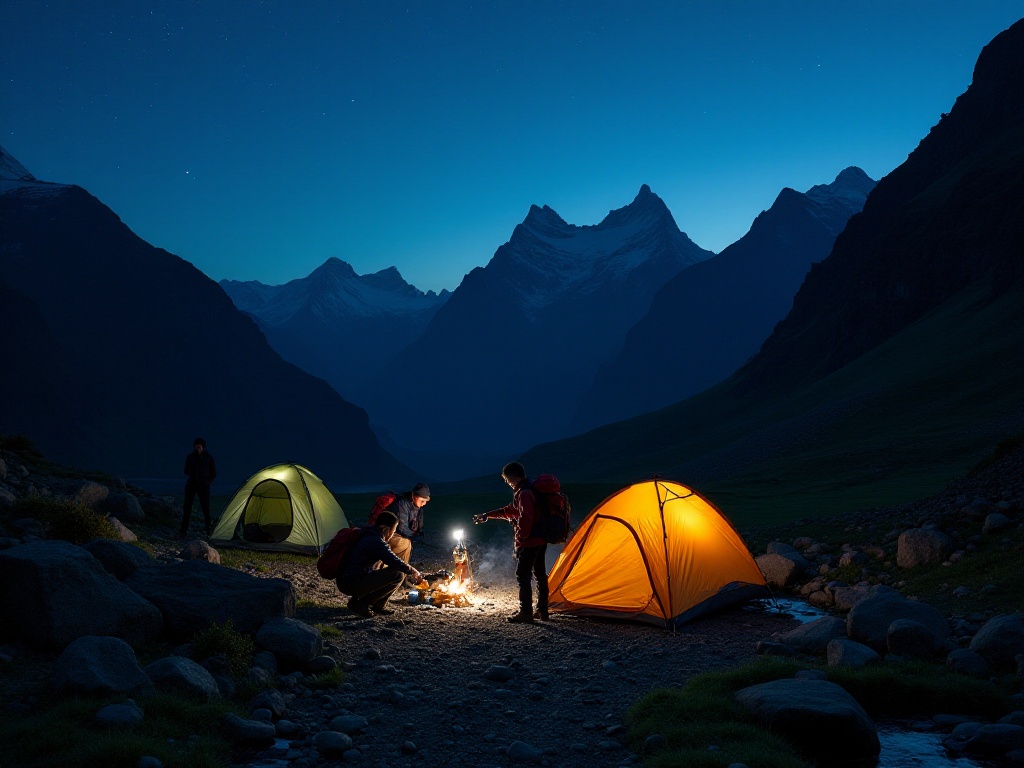Introduction
I'm Xiao Cai, a backpacker who has traveled to 37 countries. In recent years, as travel styles have diversified, I've noticed more and more friends becoming deeply interested in backpacking. During gatherings, friends often enthusiastically ask me: "What is backpacking really like? What preparations are needed? How should you plan?" As an experienced "veteran," I'd like to share my observations and experiences from these years with everyone.
What is a Backpacker
When people hear the term backpacker, they often first think of young people carrying huge hiking bags, staying in basic hostels, riding local buses, and eating at street stalls. While this is indeed the most typical image of a backpacker, the essence of backpacking goes far beyond that. Backpackers are more like explorers who pursue freedom, love adventure, and crave authentic experiences. They're not satisfied with the superficial sightseeing of group tours but hope to understand local culture and life in a deeper way.
I remember my first backpacking trip was in 2015, shortly after college graduation. I had worked for about half a year and had savings of just over 10,000 yuan. At that time, like many young people just getting into backpacking today, I both yearned for distant places and worried about various issues. But ultimately, I made my choice - carrying a backpack to Southeast Asia. During that time, I stayed in youth hostels that cost just over ten yuan per night, sharing rooms with travelers from around the world. Though the accommodations were indeed basic, that feeling of complete freedom without having to worry about others' opinions made me fall in love with this way of traveling.
During that trip, I met many interesting friends. There was a photographer who had just flown in from Australia, a German couple planning to travel around the world for a year, and a Japanese girl who came specifically to learn traditional crafts in Southeast Asia. We would each set out during the day to explore places we were interested in, then gather back at the hostel in the evening to share our experiences. That pure joy deeply captivated me.
Why Choose Backpacking
Speaking of why choose backpacking, this is actually an interesting question. You know what? The most attractive thing about backpacking is that it allows you to gain the most authentic travel experiences in the most economical way. It's not just about saving money, but more about embodying a lifestyle attitude.
In Hanoi, Vietnam, I once stayed with a local family through Airbnb. The host was a Vietnamese auntie over fifty who couldn't speak English but was extremely warm-hearted. Every morning, she would take me to her small kitchen to teach me how to make authentic Vietnamese spring rolls. We communicated through gestures, and although we couldn't speak each other's language, that warm feeling remains unforgettable.
In Varanasi, India, I joined a group of German backpackers, getting up at four in the morning to sit by the Ganges River waiting for sunrise. Watching devotees bathing and praying by the river, hearing the morning bells, that overwhelming feeling is something no luxury hotel could provide. These most authentic experiences are something group tours can never give you.
I also remember in Siem Reap, Cambodia, I rented a bicycle and rode aimlessly on country roads. Passing by a small village, I saw some local children playing who warmly waved to me and invited me to their home. That afternoon, in a simple Cambodian house, I drank freshly ground coconut water and listened to elders tell their family stories, experiencing the purest human warmth.
While trekking in Nepal, I met a British couple. They were already retired but chose to backpack through the Himalayas. In the evening at the teahouse, they shared their travel stories from when they were young, making me understand that backpacking knows no age - what matters is having an eternally young heart.
Money-Saving Tips
Many people's first reaction to international travel is "it's too expensive." But backpacking can actually be very economical. I spent three months in Southeast Asia for just over 10,000 yuan total. This included all expenses like flights, visas, accommodation, transportation, food, and entertainment. How did I do it? Let me share my money-saving secrets.
First is accommodation costs. I mainly choose youth hostels, and today's hostels have good conditions, many with boutique designs. For example, in Chiang Mai, there are many stylish hostels that cost just 50-60 yuan per night. These hostels are not only clean and tidy but also equipped with shared kitchens, laundry rooms, and other facilities - some even have swimming pools and terraces. Most importantly, in hostels you can meet friends from around the world, a social experience that hotels can't provide.
Second is transportation costs. I mostly choose local public transportation. In Thailand, a sleeper train ticket from Bangkok to Chiang Mai costs just over 200 yuan, and you save one night's accommodation. Although the journey is longer than flying, the scenery and experience along the way are something you'll never see from a plane. In Vietnam, I often took night buses, saving on accommodation while arriving at destinations early to start the new day's itinerary.
As for food, I rarely eat at restaurants in tourist areas, preferring local small shops instead. For example, in Bangkok, I love going to morning markets for breakfast where a delicious boat noodle soup costs just over ten yuan. In Hanoi, street vendor pho might only cost a few yuan but tastes absolutely authentic. Often, cooking in the hostel's shared kitchen is also a good choice - it saves money while allowing you to exchange culinary skills with other backpackers.
For admission tickets, there are many money-saving tricks too. Many attractions have student tickets - remember to bring your student ID. Some museums have free admission during certain hours - doing homework in advance is important. In Europe, many cities have passes that allow unlimited use of public transportation and museum visits within a fixed time - much more economical than buying individual tickets.
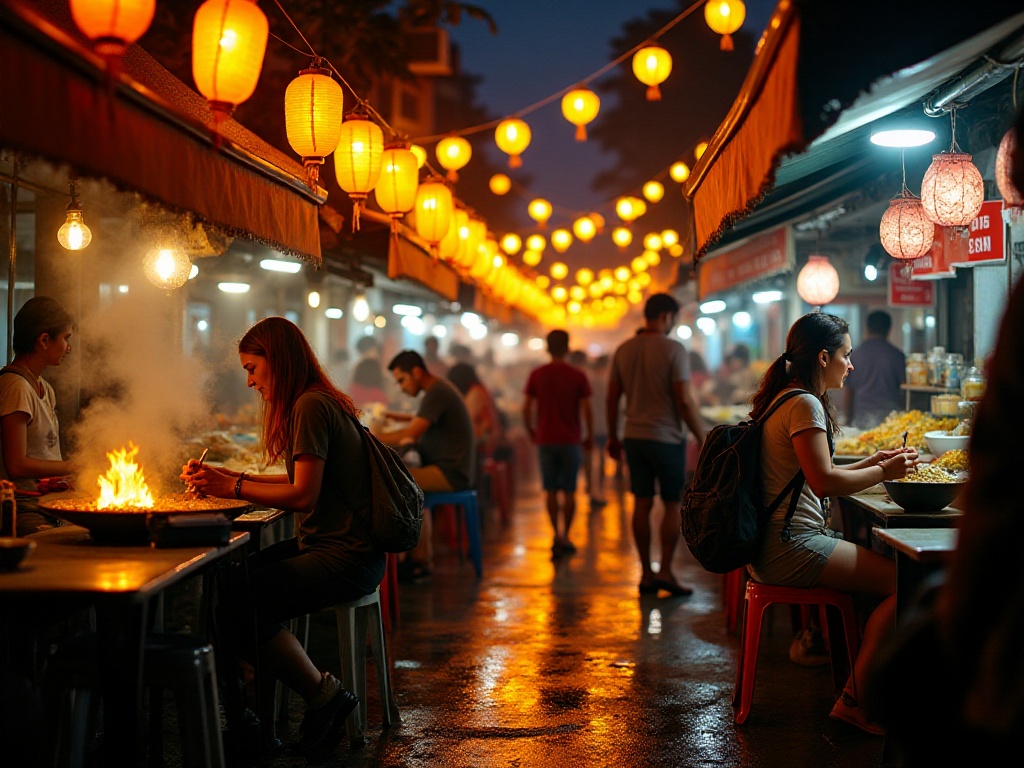
Pre-Trip Preparation
Although backpacking gives a feeling of spontaneity, advance preparation is actually very important. Good preparation can make your journey smoother and help you save money.
First is document preparation. Passports and visas are basic, but many people overlook some details. For example, passports must be valid for over six months, and some countries require passports to have enough blank pages. Visas also need advance planning as some countries take longer to process them. I suggest scanning all important documents and storing them in the cloud for emergencies.
Travel insurance is an important aspect that many people easily overlook. I've seen several backpackers spend a lot of money due to illness or accidents. Once in Laos, an Australian girl injured her leg, and because she had no insurance, just the medical fees cost tens of thousands. So I suggest definitely buying reliable travel insurance - it's worth the money.
Mosquito repellent is essential in Southeast Asia. My first time in Indonesia, I didn't pay attention to mosquito prevention and ended up covered in bites. Later I learned to not only carry mosquito repellent but also bring some essential oils and medicated oils - they can both prevent mosquitoes and help other backpackers solve problems, making them a good way to make friends.
You should also prepare some common medications. I bring basic medicines like cold medicine, stomach medicine, band-aids, etc. Although you can buy medicine abroad, it's quite troublesome when there's a language barrier. Plus, medicine prices can be quite expensive in some places.
For electronic devices, besides phones, I suggest bringing a power bank and universal adapter. Different countries have different socket standards, and a universal adapter can solve many problems. If you like photography, bring a camera of course, but watch the weight. I now use a mirrorless camera - it's lightweight with good results.
Packing Tips
Speaking of luggage, this is truly a skill. Choosing the right backpack is crucial - I use a 40L backpack, which is just right for 1-3 months of travel. The backpack should be waterproof material, preferably with a rain cover. Shoulder straps should be wide enough for comfort. My backpack has many small pockets, convenient for organizing items.
Packing techniques are also important. I use packing cubes to categorize clothes - one for tops, one for underwear, one for pants. This makes finding things very convenient while maximizing space compression. Clothing should be quick-dry - easy to wash and dry, and wrinkle-resistant. I follow one principle: bring everything needed, but only one of each item.
For specific clothing, I usually bring 3-4 T-shirts, 2 pairs of long pants, 1 pair of shorts, 4-5 sets of underwear, 2 pairs of socks. These clothes can be mixed and matched, and they dry overnight after washing. Shoes are most important for comfort - I usually just bring one pair of sneakers and one pair of flip-flops. If planning to go to the beach, bring swimwear too.
Toiletries should be travel-sized or buy compressed travel versions. Bring basics like toothbrush/toothpaste, facial cleanser, sunscreen, but things like shower gel and shampoo are more convenient to buy locally.
Electronic products and chargers should be kept together in one organizer - this prevents mess. Best to bring an extra backup cable. If bringing a camera, remember to bring enough memory cards.
Important documents and cash should be kept separately in a waterproof bag, preferably carried close to your body. Passport, bank cards, and cash should be stored separately so you have backups if one is lost.
Route Planning
Planning routes is quite interesting. I suggest new backpackers choose Southeast Asia as their first destination. The climate is pleasant, costs are low, and it's especially suitable for beginners. Local people are generally friendly, basic English communication is usually fine, and there are many backpackers, making it easy to make friends.
My first backpacking trip started from Bangkok. I stayed there for a few days first, adjusting to the time difference and local life rhythm. Then took a train to Chiang Mai, where the old city and night markets are very distinctive. After that, went to Vientiane and Luang Prabang in Laos, where taking a slow boat down the Mekong River was an unforgettable experience. Then to Siem Reap, Cambodia to see sunrise at Angkor Wat. Finally to Vietnam, traveling south from Hanoi to Ho Chi Minh City, with memorable scenery and food along the way.
This route is still classic now, with convenient transportation and many fellow travelers to meet along the way. Plus, visas for these countries are relatively easy to get, some even offering visa on arrival.
When planning routes, pay attention to seasonal factors. Southeast Asia has distinct rainy and dry seasons - best to go during dry season. For example, November to February next year is the best time to travel in Thailand, with pleasant temperatures and little rain.
Time allocation should also be reasonable. Stay at least 2-3 days in each place to really experience local life. Don't try to cover too many places in a short time - that's tiring and the experience won't be good. I suggest leaving one day for free activities at each destination, so you can arrange activities based on your mood and energy level at the time.
For transportation, do homework in advance. Some train tickets need to be booked several days ahead, especially sleeper trains in Thailand. International buses also need advance booking, as tickets can be tight during peak season. There are many online ticket booking apps now for advance planning.
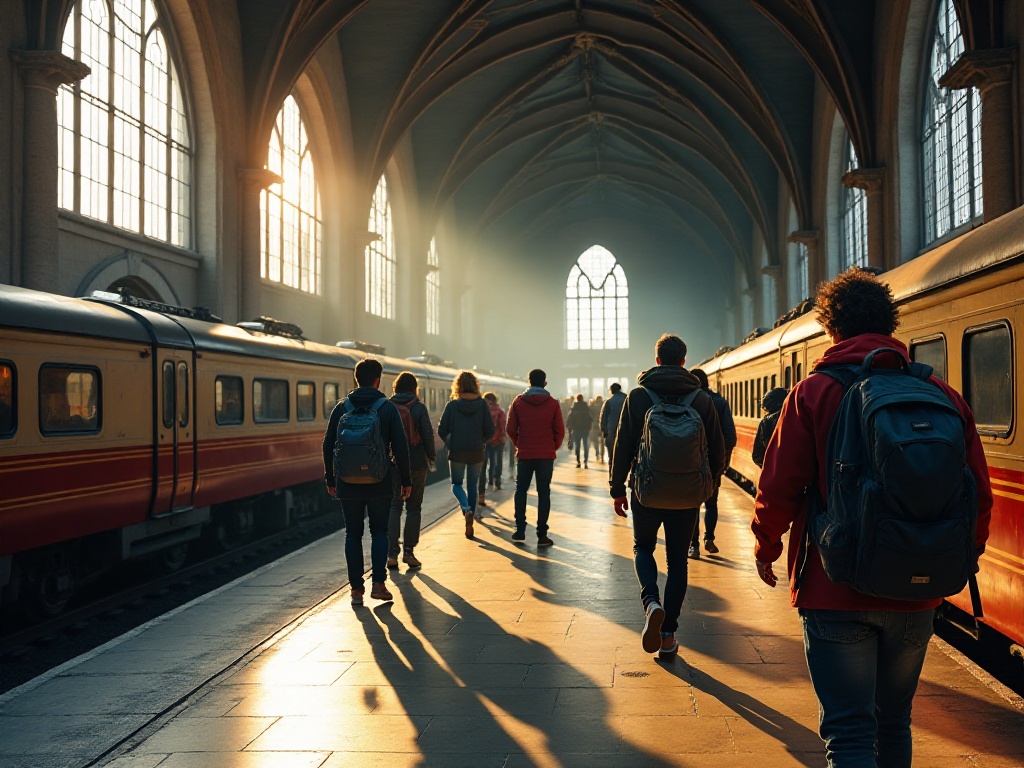
Safety Issues
Safety is always the most important topic in travel. I think the key is to understand your destination in advance. For example, before going to India, I did a lot of research to know which places to go and which to avoid, what times are suitable for going out, and when to be especially careful.
Stay alert in unfamiliar environments. Especially in crowded places, watch your belongings carefully. I put a small lock on my backpack for extra security. At accommodations, better to put valuables in the front desk safe.
Make several copies of important documents and store cash in different places. I usually keep my passport and most cash in an anti-theft pouch close to my body, only carrying enough cash for daily use. Better to have at least two bank cards, so you have a backup if one has problems.
Say no firmly to suspicious situations. Don't reluctantly agree to others' requests out of politeness or fear of offending. Better to miss an opportunity than take risks. If feeling unsafe, can seek help from local police or embassies.
For accommodation, although hostels are cheap, choose ones with good reviews. Better to book online in advance and check other guests' reviews. Try not to go out alone at night, better to go with other backpackers if you need to.
For transportation, choose official transport options. Although illegal taxis might be cheaper, the safety risks are too high. If traveling at night, better choose official long-distance buses or trains. For taxis, suggest using local popular ride-hailing apps - safer and less likely to be overcharged.
Cultural Differences
Traveling in different countries, the most interesting part is experiencing different cultures. But meanwhile, cultural differences can also bring some awkwardness or trouble. I remember in India, the first time I saw people eating with their hands, I felt quite uncomfortable. Later I learned that in India, the right hand is for eating while the left hand is for other things. This is their traditional custom which we should respect.
Before departing, must understand local cultural taboos. For example, in Thailand, you can't point at people or objects with your feet - that's very impolite. Also can't casually touch others' heads because Thai people consider the head the most sacred part of the body. When visiting temples, pay attention to dress code, can't wear too revealing clothes.
When traveling in Muslim countries, especially need to respect local religious customs. Women should dress modestly, better to prepare a headscarf. During Ramadan, avoid eating in public during daytime. When visiting mosques, must remove shoes, and some places require long sleeves and pants.
Language differences are another issue to note. Although English can be used in many places, learning a few basic local phrases will bring unexpected convenience. For example, knowing how to say "hello", "thank you", "goodbye" in local language can make local people have a much better impression of you. I usually keep these common phrases in my phone to check when needed.
In some countries, bargaining is very common. But need to pay attention to bargaining methods, don't go too far. Remember at a market in Morocco, I saw a handicraft I liked, the owner asked for 100 dirhams, I directly said 20...
Introduction
I'm Xiao Cai, a backpacker who has traveled to 37 countries. In recent years, I've noticed more and more friends becoming interested in backpacking. Every time we discuss this topic, people always ask me: what's backpacking really like? What preparations are needed? How do you plan? Today, let me share these things with you.
Honestly, every time I recall my experiences along the way, I feel extremely lucky. From being a curious novice about backpacking to now being able to independently plan routes to any destination, this process has taught me so much. Not just seeing different customs and cultures, but more importantly meeting like-minded friends and gaining rich life experiences.
What is a Backpacker
Speaking of backpackers, you might think of young people carrying big bags, staying in hostels, riding buses, and eating street food. Yes, that's the most typical backpacker image. But backpacking is actually far more than that.
Remember my first backpacking trip was in 2015, shortly after graduation, with not much savings, just carrying a backpack to Southeast Asia. Back then I stayed in hostels costing just over ten yuan per night, sharing rooms with travelers from around the world. Though conditions were basic, that feeling of complete freedom made me fall in love with it.
Talking about my first hostel experience, I was both nervous and excited. It was at a small hostel on Khao San Road in Bangkok. I remember when I opened the door, I saw two German girls packing their bags, an Australian guy reading on his bed, and a Korean guy organizing his camera. Though we couldn't communicate well, we quickly became friends. That night we went to the night market together for Thai food, drinking cheap beer and sharing our travel experiences - it was amazing.
Actually, "backpacker" isn't a fixed label. Some people like minimalism, daring to travel with just a small bag; others prefer bringing professional photography equipment to capture beautiful scenery along the way; some choose cycling or hiking to experience different ways of traveling. But we all have one thing in common: yearning for freedom and loving exploration.
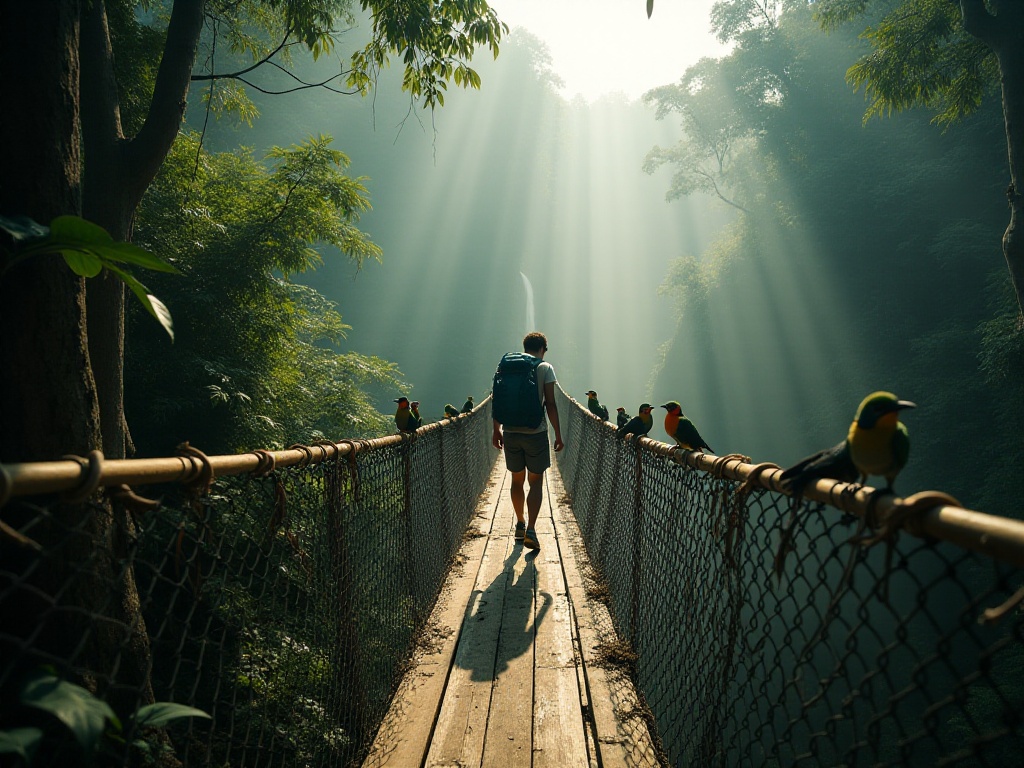
Why Choose Backpacking
You know what? The most attractive thing about backpacking is that it lets you gain the most authentic experiences in the most economical way.
In Hanoi, Vietnam, I once stayed with a local family where the host aunt would teach me how to make Vietnamese spring rolls every morning. In Varanasi, India, I sat with a group of German backpackers by the Ganges River watching sunrise. These experiences are something group tours can never give you.
Remember those days in Hanoi, though the host aunt couldn't speak English and I couldn't speak Vietnamese, we managed to communicate perfectly through body language and simple gestures


